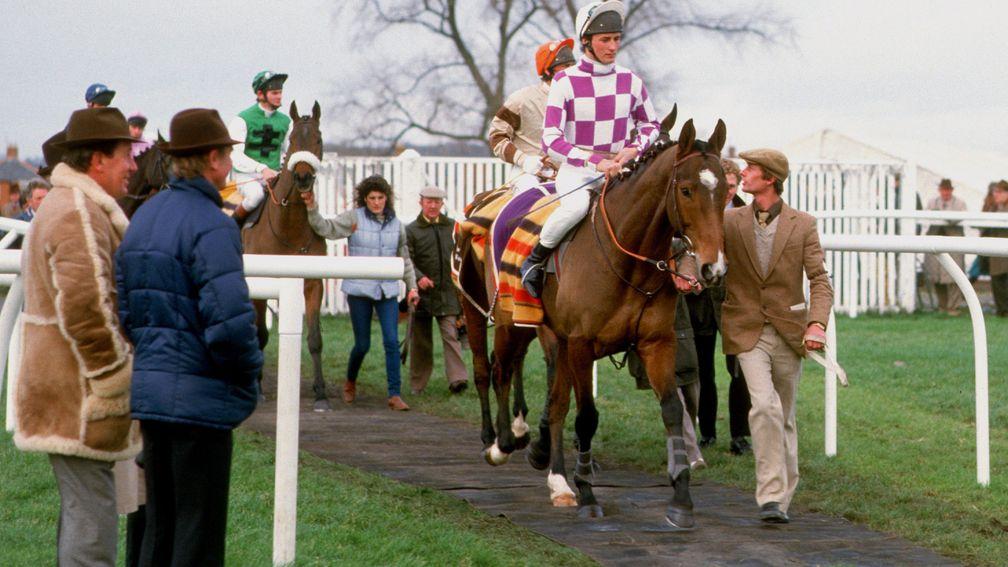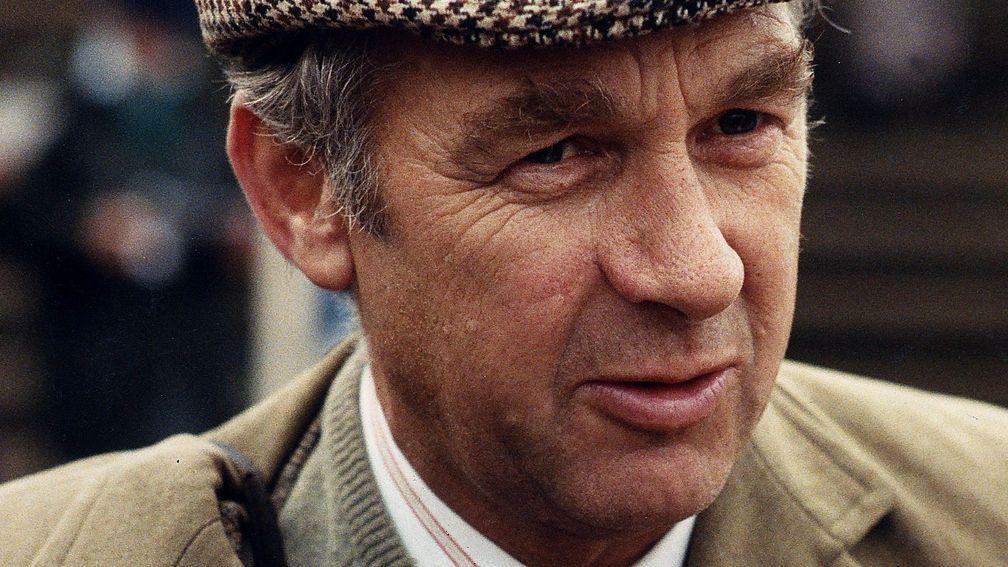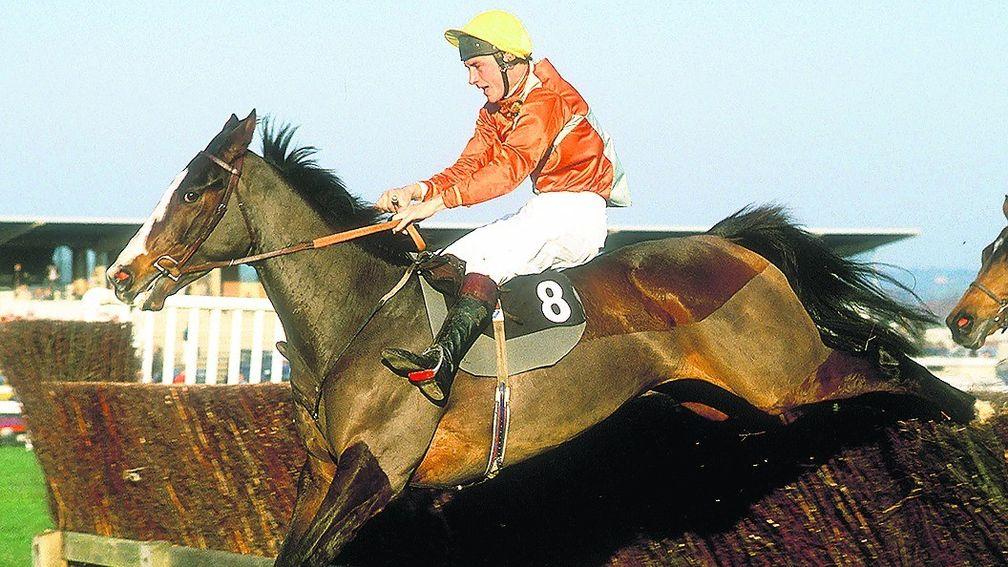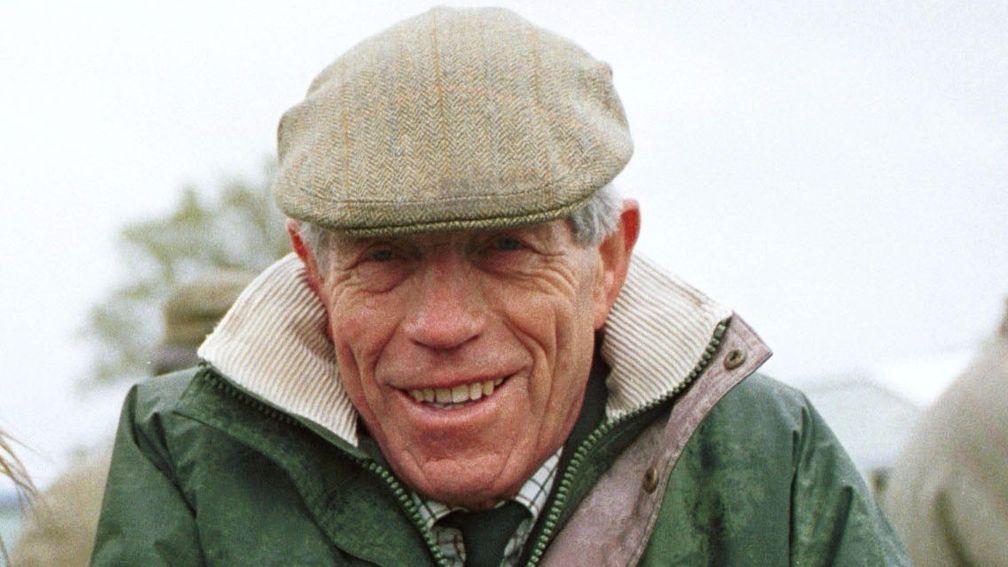Do you remember when . . . Paul Nicholls won the Hennessy – as a jockey
Peter Thomas on the now champion trainer's big-race victory

First published onFeburary 5, 2015
For anybody coming to the story cold, with no knowledge of the man as anything other than the pre-eminent trainer of his generation, the notion that Paul Nicholls was formerly a jump jockey occupies the same realm of feasibility as the discovery that Charles Hawtrey once finished runner-up in Mr Universe.
Not any old jump jockey, either, but a jump jockey who weighed out at 10st 5lb to land the 1986 Hennessy Gold Cup on Broadheath and was able to perform a second minor miracle in the same race a year later, when tipping the scales at 10st 8lb for the winning ride on Playschool.
It may not quite have been turning water into wine, but it still beggars belief that the amply proportioned citizen of today, with the plus-size tweed suit and the contented air, could have boiled himself down to such inhuman proportions on a daily basis for what turned out to be a mere prelude to his true calling.
There are those of us, however, who recall the sight of a confident Nicholls in the purple and white checks of owner Michael Marsh, white cap long ago lost in the mud, black crash hat bobbing menacingly as he stalked the leaders on the strong-travelling Broadheath, shrugging off an alarming blunder at the third-last fence before surging clear of Two Coppers and Maori Venture to record a convincing success for his guv’nor David Barons.
Name Paul Nicholls
Nationality British
Date of birth April 17, 1962, weighing 7lb 2oz Synopsis Rode 118 winners in Britain and one in Ireland between 1981-82 and 1988-89
Biggest wins Broadheath and Playschool in successive Hennessys in 1986 and 1987, with Playschool also landing the Welsh National and the Vincent O’Brien Irish Gold Cup
Retired In 1991, after Seagram’s Grand National, at the age of 29
Subsequent career Made a phone call to owner, dairy farmer and landlord Paul Barber, set up camp at Barber’s Manor Farm Stables in Ditcheat and became Britain’s leading jumps trainer
It seemed perfectly natural at the time, without awareness of the torments being routinely endured by a man who was, by admission, “the wrong shape for the job”.
In the very next race, he won on Playschool, came back in and revealed this fencing debutant was the following year’s Hennessy winner. He was right, although he neglected to mention the best horse he ever rode would go on to win a Coral Welsh National and Vincent O’Brien Irish Gold Cup.
It has to be said these were the scattered highlights of a moderate riding career. The rest of the eight years consisted of a perfectly adequate 119 winners, a total probably more than he might reasonably have expected when, as the ambitious son of a burly Gloucestershire policeman, he took his first steps down an optimistic career path.
He’d been a reluctant participant at school and not much better at sports, but he was an enthusiast on the cheap pony his mum and dad bought for him when they saw where his true passion lay. Before long, the small, chirpy lad was a regular on the gymkhana circuit where he befriended the children of top point-to-point trainer Dick Baimbridge.

Baimbridge went on to become his mentor and inspiration, but as the teenage Nicholls progressed from hunting and pony racing – in which he struck up a prolific relationship with a speedy sort called Hint Of A Tint – to point-to-pointing, he changed from the stripling schoolboy with four stones of lead in his saddle cloth to the strapping six-footer we see today. It should have come as no surprise, given that granddad Frank was a 19st rugby player and dad Brian no shrimp, either, but it was a growth spurt that condemned our man to eight years of damaging and debilitating conflict with the scales before a dramatic and painful turn of events finally put an end to the postponement of the inevitable.
“I was exactly the kind of jockey I wouldn’t employ today,” says the eight-times champion trainer, perusing snapshots of his Hennessy wins on his mobile phone. “I was just a jockey and no more, too tall, too heavy and fairly ordinary, but I could talk and I could get myself opportunities.
“I didn’t think I was very good, but if you could promote yourself and sell yourself, I found you could get on and things snowballed when you had a winner, even if you didn’t ride it very well. But for me it was always a means to an end and there was no way it could last.
“The first winner I rode was Jock’s Bond for Richard Holder, at 9st 7lb after a few pee pills Peter Hobbs gave me – which left me weak, light-headed and not much more than a passenger. And from then on I had a continual battle with my weight. By the end of that year I was struggling to do 10st 4lb and by the time I won the Irish Gold Cup on Playschool in 1988, he had 12st and I was 11st 4lb stripped. I knew it couldn’t go on for much longer.”
Nicholls had viewed riding as an amateur as his route into the sport that fascinated him. He badgered local trainer Les Kennard long enough to wangle a few winning rides and become the 7lb claimer of the moment, which got him noticed to the extent he was constantly in demand and even attracting the attention of Josh Gifford at Findon.

There were early debacles for the weak and dehydrated teenager, but soon, from being an outsider, he had turned professional, was ensconced at one of the top jumping yards, enjoying success at the Grand National meeting and believing 23 winners from 239 rides in 1982-83 might be the start of great things.
Sadly, the ups were accompanied by the downs. Falls and injuries are no fun at the best of times, but for a naturally big man like Nicholls, who used to fall “like a sack of spuds”, they disrupt what is already a precarious balance between activity, weight and career momentum. Two broken collarbones and a dislocated shoulder in quick succession were enough to stall the young rider’s progress and dent his confidence and, even though he was soon up to 50 winners and had got on the scoreboard for Martin Pipe, the warning signs were beginning to appear by the roadside.
He had lost his claim, seemingly fallen out of favour at Findon, was hindered in his search for outside rides by his weight problems and was struggling to stay sound – all of which left him struggling to pay the bills and contemplating an uncertain future.
Nicholls’ first brush with training came when he helped prepare a horse trained under permit by the father of his then girlfriend (later wife) Tarnya Davis (later Sherwood). The plan had been to make a healthy living riding for Gifford, Kennard, John Thorne and Kevin Bishop, while keeping an eye to the future, but the plan had already begun to unravel. He ended the 1985 season with a meagre seven winners and was forced to leave Findon or find himself in the professional doldrums.
It was here the first stroke of good fortune came to his aid, as he overheard a weighing room conversation in which Hywel Davies, stable jockey to David Barons in Devon, recommended to Colin Brown he get himself down to the yard in a hurry to coincide with the arrival of a contingent of nice New Zealand-bred youngsters that would require the attentions of a second jockey.
Nicholls, never one to pass up an opportunity, was first out of the traps and soon found himself with his feet under the table at a once-powerful yard that seemed to be on the point of a resurgence. Moreover, it turned out Barons had one eye on 1,000 acres of farming interests, very often leaving the horses to his wife Jenny, young head lad Andy Hobbs and any keen rider with an eye to a future in training.
As a bonus, the horses were turning out to be pretty useful and although Nicholls ended his first season at Woodleigh with just nine winners, he was offered the job as first jockey for the coming year, moved into a cottage on the farm with Tarnya and began to dream of glory.
Sadly, the strands of his riding career were already beginning to unravel, as his weight became progressively more of a problem and the tortuous routine of fasting, sweating and binging took an ever greater toll on his life.
“I used to come home, have a piece of fish and a couple of bits of spinach and a bottle of water and go and lie in the sauna I’d had put in at the house for four hours,” he recalls with no affection whatsoever. “If you did that in the morning you’d be dehydrated and feel like shit, but if you did it the night before and slept on it, your body would adjust overnight and you wouldn’t feel so bad. That was the theory, but I hated it. Some people absolutely loved riding, but I didn’t.
“We never had any help in those days, apart from the doctors giving you pee pills like they were going out of fashion. They were horrible things and thank God the lads these days aren’t allowed to take them.
“There were no nutritionists, so you’d starve yourself for three days, go out and ride then stop in the garage on the way home and have three Mars bars, two bottles of Lucozade and another bar of chocolate, then feel sick.”
In time, the diuretics and the sweating became counterproductive and the weight problem became exacerbated. When Nicholls was required to make 10st 5lb for the first time in a long while – on Broadheath in the Hennessy – it was almost a sweat too far but, such was the confidence behind the 6-1 second-favourite, the rider made the weight and even had the strength to cling to the horse’s neck as he clouted the third-last fence.
“Broadheath was a fair tool but he didn’t jump very well,” remembers Nicholls. “I was quite good on those because I was quite long-legged and I managed to hang on. He was travelling so well it hardly even slowed him down.”
Even this great day was overshadowed by the following year’s renewal, which Nicholls rates as his finest hour in the saddle.
“I still remember the roar from the crowd as Playschool jumped the last,” he smiles. “He went on to even greater things, but the second Hennessy on the trot was the best day of all.” Playschool went on to be pulled up in the Cheltenham Gold Cup, amid allegations by Barons the horse had been doped.

By this time, the ravages of constant starvation and dehydration were becoming apparent, in the shape of headaches, stomach cramps, severe concussions and a failing marriage. On the track, on a promising horse, Nicholls was sustained by adrenaline, but off it he was low and suffering.
He and Tarnya were married in June 1987 and effectively separated after nine months, Nicholls admitting later, “I was such a miserable bastard . . . you get in a depression because you are in a state, struggling against nature all the time”.
It wasn’t long before the fissures that appeared in his marriage began to undermine his professional life. The Barons’ marriage was going the same way as his own, life at Woodleigh was becoming uncertain and Nicholls found himself on the brink of having to make a momentous decision before fate spared him the bother.
“In the summer you had two months off and it was easy to get fat,” recalls the rider who had had to endure the bad influence of both the fish-andchip-loving Gifford and Barons, with his well-stocked raceday picnic box.
“In 1989 I was about 12st 4lb when I came back and I couldn’t shift it. I knew I was in trouble. I’d had to pass up a ride at Towcester in May because I couldn’t do 11st and things were getting worse rather than better when matters were taken out of my hands a fortnight before the new season started.”
At morning exercise, the Barons string were trotting down a narrow country lane when Nicholls, on the effervescent Topsham Bay, took a direct hit from the hind hoof of one of the horses, which left him writhing in agony by the side of the road with a bone poking through his skin. For a moment, the pain took precedence, but very quickly the positives began to emerge.
“As I was waiting for the ambulance to come and pick me up, my first thought was get me to hospital so I can have something to eat,” he says. “By the time I came out I was the best part of 13st and it took me a year to get right. I was never going to ride again and, looking back, it was the best thing that could have happened, to break that cycle of wasting and dehydration that was driving me mad.
“Once Seagram had won the National for us – a horse I played my part in training – I knew the time was right.”
The journeyman jockey with the big-race credentials was finally free to fulfil his destiny. No more sweating in the car in two tracksuits, a big coat and a bin liner for new trainer PF Nicholls – the wasting may have left him with lasting side effects to this day, but he has survived and thrived.
“I got on the right horses at the right time and rode for some great trainers,” he concludes, “but when I went to ride out for them I was always thinking what I could learn from them for the future. Without horses like Broadheath and Playschool to ride, I would have got out a lot earlier, but it took a broken leg to help put me where I am today.”
Members can read the latest exclusive interviews, news analysis and comment available from 6pm daily on racingpost.com
Published on inRP Classics
Last updated